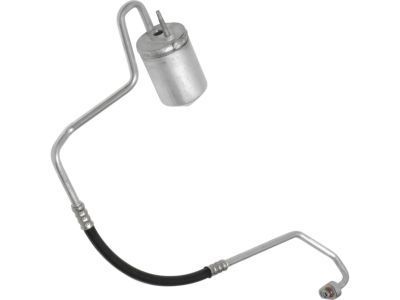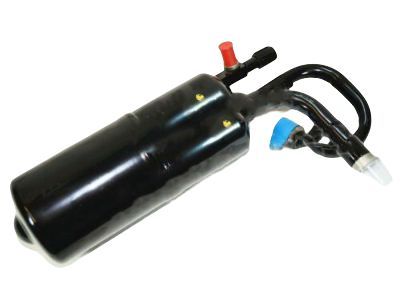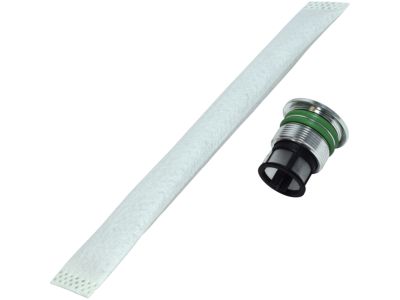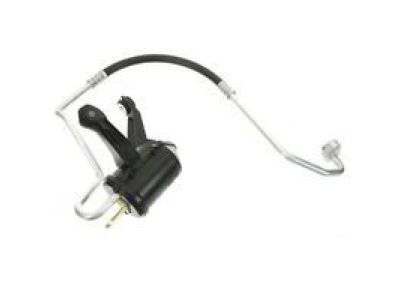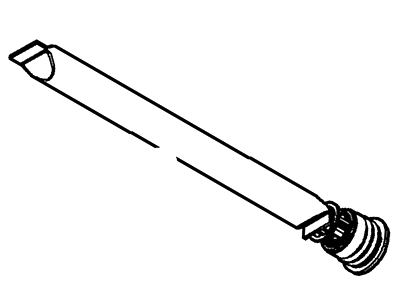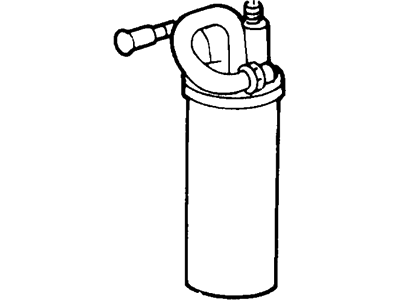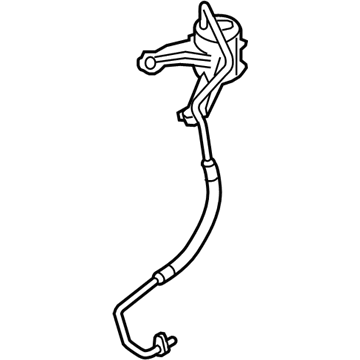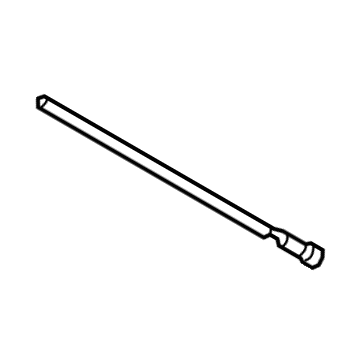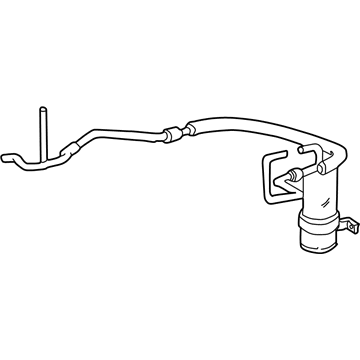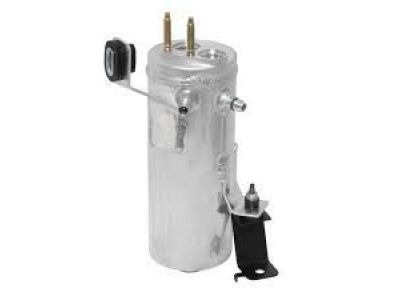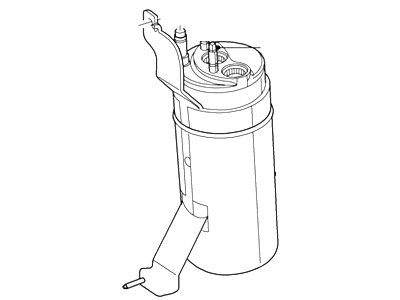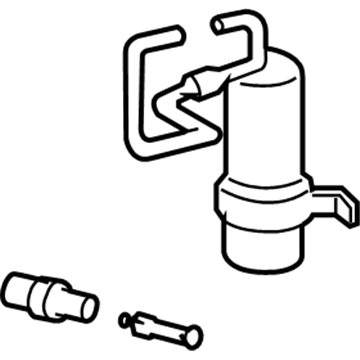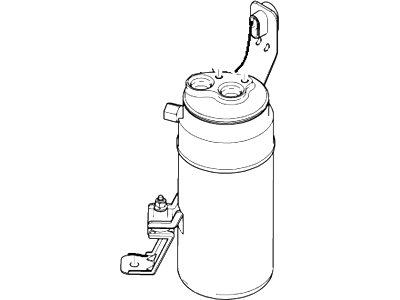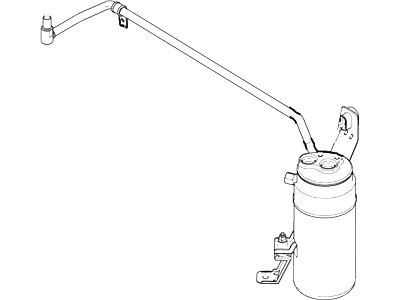×
- Live Chat
- 1-888-788-9341


My Garage
My Account
Cart
Genuine Ford Explorer A/C Accumulator
Accumulator- Select Vehicle by Model
- Select Vehicle by VIN
Select Vehicle by Model
orMake
Model
Year
Select Vehicle by VIN
For the most accurate results, select vehicle by your VIN (Vehicle Identification Number).
18 A/C Accumulators found
Ford Explorer Dehydrator Assembly
Part Number: GB5Z-19959-A$50.16 MSRP: $82.91You Save: $32.75 (40%)Ships in 1 Business DayFord Explorer Accumulator Assy - Air Conditioning
Part Number: XL2Z-19C836-AC$58.30 MSRP: $96.36You Save: $38.06 (40%)Ford Explorer Accumulator Assembly - Air Conditioning
Part Number: BB5Z-19C836-A$30.78 MSRP: $49.09You Save: $18.31 (38%)Ships in 1-2 Business DaysFord Explorer Dehydrator Assembly
Part Number: BB5Z-19959-B$53.79 MSRP: $88.91You Save: $35.12 (40%)Ships in 1-2 Business DaysFord Explorer Accumulator Assembly - Air Conditioning
Part Number: EB5Z-19C836-A$44.69 MSRP: $71.27You Save: $26.58 (38%)Ships in 1-2 Business DaysFord Explorer Accumulator Assembly - Air Conditioning
Part Number: F87Z-19C836-AA$58.30 MSRP: $96.36You Save: $38.06 (40%)Ford Explorer Dehydrator Assembly
Part Number: BB5Z-19959-A$53.79 MSRP: $88.91You Save: $35.12 (40%)Ships in 1-2 Business DaysFord Explorer ACCUMULATOR ASY - AIR CONDITIO
Part Number: L1MZ-19C836-AB$26.79 MSRP: $41.64You Save: $14.85 (36%)Ships in 1-3 Business DaysFord Explorer Accumulator Assy - Air Conditioning
Part Number: F4TZ-19C836-B$7.86 MSRP: $10.92You Save: $3.06 (29%)Ships in 1-2 Business DaysFord Explorer Accumulator Assy - Air Conditioning
Part Number: F5TZ-19C836-A$132.91 MSRP: $292.73You Save: $159.82 (55%)Ships in 1-2 Business Days
Ford Explorer A/C Accumulator
The A/C Accumulator of Ford Explorer automobiles holds a significant purpose in the functionality of the air conditioning system. This rotary assembly is a cylinder-like part which is snapped in the middle of the evaporator and the compressor, and is designed to clean the cooling system from such impurities as moisture, oil, and debris. In doing so the A/C Accumulator avoids future damages to the compressor or inferior performance of the air conditioning system. Although the overview does not distinguish between different types or styles of A/C Accumulators that may be installed in different models of the Explorer, the purpose remains the same as well. The A/C Accumulator also has a function of the filter namely in determining the kind of contaminants that should be trapped to enhance the durability and the efficiency of the Ford Explorer A/C system.
We provide a wide range of Ford Explorer A/C Accumulator at the best prices possible. If you need Ford Explorer A/C Accumulator, you can shop with confidence on our website. All our OEM parts come with a manufacturer's warranty and are delivered to your door step with a fast delivery service.
Ford Explorer A/C Accumulator Parts Questions & Experts Answers
- Q: How to remove and replace the air conditioning accumulator on Ford Explorer?A: Have the air conditioning system discharged and recovered. Disconnect the negative cable from the battery. On 2001 and later models, remove the air intake duct, and unbolt and set aside the cruise control module. Unplug the electrical connector from the pressure switch near the top of the accumulator. Unscrew the pressure switch. On 2001 and later models, unbolt and set aside the coolant recovery/washer reservoir. Disconnect the refrigerant line from the accumulator. This requires a spring lock coupling tool of the type used for fuel injection system lines. Use a backup wrench to hold the fitting that connects the accumulator to the Evaporator core, then disconnect the fitting. Plug the open fittings to prevent entry of dirt and moisture. Remove the mounting bracket screw and the screw that holds the evaporator tube to the accumulator bracket, then lift the accumulator out. If a new accumulator is being installed, remove the Schrader valve and pour the oil out into a measuring cup, noting the amount. Add fresh refrigerant oil to the new accumulator equal to the amount removed from the old unit, plus 2 ounces. Loosely position the bracket on the new accumulator. Connect the accumulator to the evaporator core, using a new O-ring lubricated with clean refrigerant oil. At the same time, align the bracket with the slot between the evaporator case flanges. Using a backup wrench, tighten the fitting securely. Install the screw that holds the bracket. Tighten the accumulator bracket and install the clip that holds the evaporator inlet tube to the bracket. Place a new O-ring, lubricated with clean refrigerant oil, on the pressure switch nipple on the accumulator. Install the pressure switch. If it has a metal base, tighten it. If it has a plastic base, tighten it by hand only. Connect the pressure switch electrical connector. Reconnect the negative cable to the battery. Take the vehicle to the shop that discharged the air conditioning system. Have the system recharged and tested for leaks.
Related Ford Explorer Parts
Browse by Year
2023 A/C Accumulator 2022 A/C Accumulator 2021 A/C Accumulator 2020 A/C Accumulator 2019 A/C Accumulator 2018 A/C Accumulator 2017 A/C Accumulator 2016 A/C Accumulator 2015 A/C Accumulator 2014 A/C Accumulator 2013 A/C Accumulator 2012 A/C Accumulator 2011 A/C Accumulator 2010 A/C Accumulator 2009 A/C Accumulator 2008 A/C Accumulator 2007 A/C Accumulator 2006 A/C Accumulator 2005 A/C Accumulator 2004 A/C Accumulator 2003 A/C Accumulator 2002 A/C Accumulator 2001 A/C Accumulator 2000 A/C Accumulator 1999 A/C Accumulator 1998 A/C Accumulator 1997 A/C Accumulator 1996 A/C Accumulator 1995 A/C Accumulator 1994 A/C Accumulator 1993 A/C Accumulator 1992 A/C Accumulator 1991 A/C Accumulator
